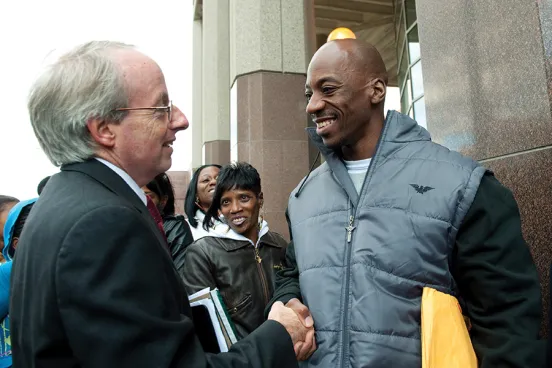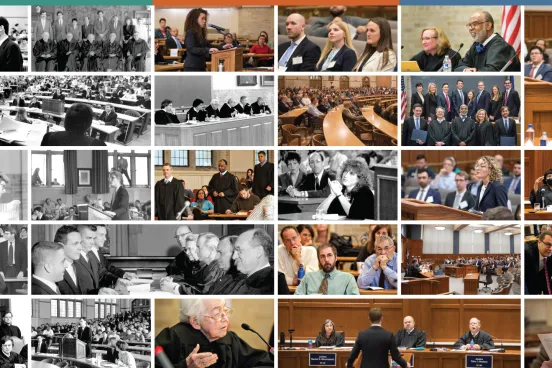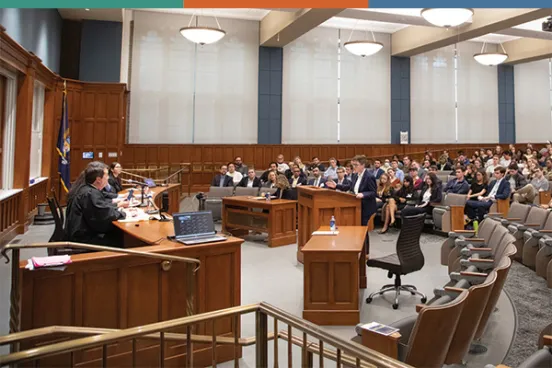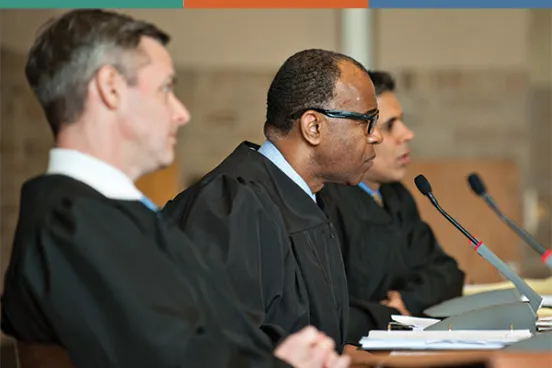
The Law School lost its oldest African American alumnus on February 4, 2014, when the Hon. William McClain, ’37, HLLD ’02, died in Cincinnati, Ohio. He was 101.
McClain was known to many simply as The Judge, and to simply call him a mentor would be understating his influence, says Marty Dunn, ’84, his longtime friend and protégé.
“He was the mentors’ mentor. He was a deeply spiritual man who loved the law and enjoyed guiding young lawyers into the profession and throughout their careers.”
But McClain also extended his high ideals to others. “He would often call me to inquire about my practice and, before ending the call, he always asked if I was bringing other African Americans into the firm and giving them the proper support to prosper,” Dunn says. “The Judge provided the shining example of how we should mentor, and held us all accountable in the process.”
Born to a teenage mother and a father who couldn’t read or write, McClain earned a bachelor of arts from Wittenberg University in Springfield, Ohio, before entering the University of Michigan Law School as the only African American student in his class. Although he was not allowed to live on campus and was isolated because of his race, McClain was a steadfast supporter of the Law School throughout his life, and served on its then-existing Committee of Visitors.
“There’s a duality in life,” McClain explained in a 2011 Law Quadrangle interview. “There’s always a good and a bad, a sweet and a sour. Your challenge is to find the opposite to the negative.”
“He absolutely loved Michigan and credited the Law School with providing opportunities for a distinguished career,” says Dunn.
After graduating from Michigan, McClain entered private practice in Cincinnati. He went on to be the first African American admitted to the Bar in Cincinnati, after twice being denied admission. He also was the first African American city solicitor of a major U.S. city and the first African American judge in Hamilton County, Ohio—a far cry from his early days, when he was forbidden from entering the courtroom because he was black. McClain retired in his mid-90s from Manley Burke LPA, always instructing those closest to him to “keep him modern.”
“He was a symbol of perseverance and pride,” says Dunn, who coordinated a special tribute to McClain at the Law School’s inaugural African American Alumni Reunion in March. “He taught me and other African American alums to value and appreciate our Michigan education and degree, regardless of the hurdles we may have faced. And he lived his 101 years with the exuberance of a 21-year-old—80 times over.”







